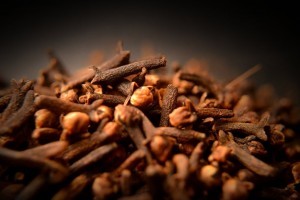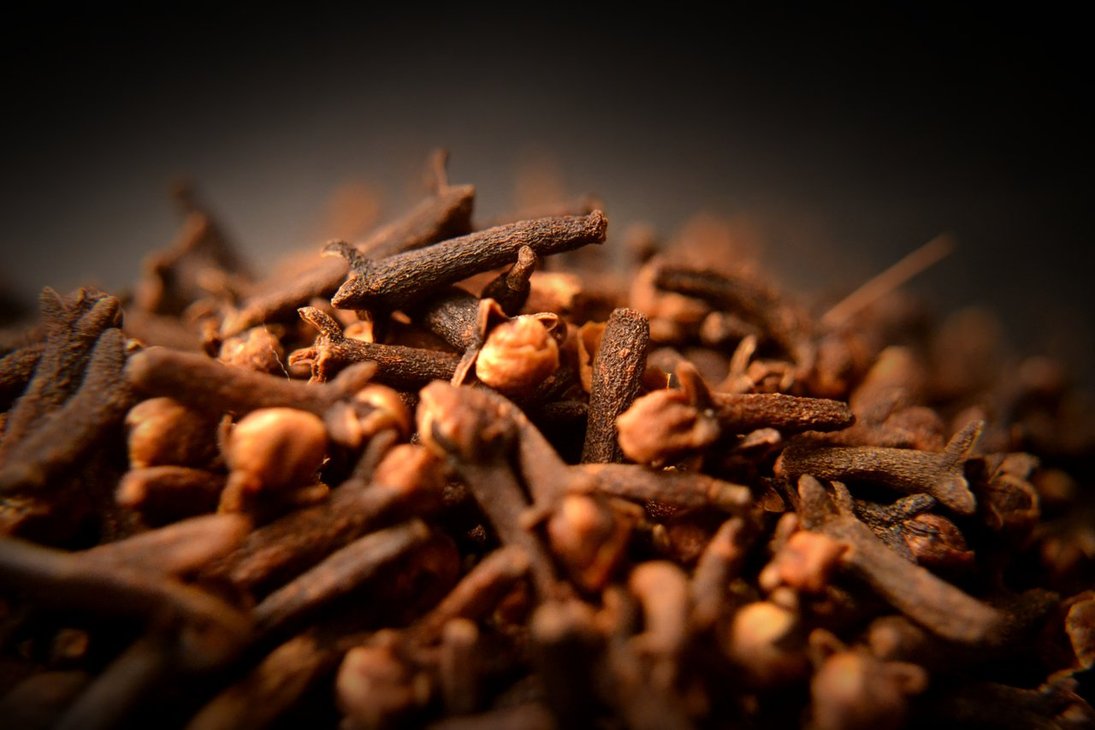
The use of clove dates back to the Han dynasty (207B.C to 220 A.D.) where it was used to hide bad breath. It was required that those who approached the Chinese emperor hold a clove in their mouth for this purpose. Over the years, traditional Chinese medicine has used cloves to treat indigestion, diarrhea, hernias, ringworm and also athletes foot and other fungal infections.
Cloves arrived in Europe in the 4th century A.D. They were considered a luxury and were used as a part of a mixture it was used to treat gout. Once cloves became readily available in Europe, they were used in a manner similar to traditional Chinese medicine. Europeans used cloves to treat indigestion, flatulence, nausea, vomiting and diarrhea. It also treated cough, infertility, warts, worms, wounds and toothaches.
Clove is a spice that’s often relegated to the spice rack for the majority of the year. Pulled out at Christmas time, the spice is added to cakes and cookies. But clove could be a delicious addition to many of your weekly meals. Not only will you love the aromatic taste of cloves, but you’ll also appreciate the health benefits you can gain by eating the spice. Clove has been used in the east for thousands of years to treat various health ailments. In Traditional Chinese Medicine, clove has been pressed into service as an aphrodisiac, as a treatment for cancer, and to ease respiratory symptoms.
What makes cloves such a healing spice? It is high in:
- Vitamins and minerals, including vitamins C and K, calcium, manganese, and magnesium.
- Omega-3 fatty acids
- Fiber
- Eugenol
- Antioxidants
All of these nutrients could boost your health but manganese holds specific significance. Manganese is needed to activate key enzymes in the …
The active component of cloves is eugenol oil. This oil makes up 60-90% of each clove and has long been thought to kill bacteria, viruses and fungi. This oil also acts as an antiseptic, anesthetic, digestive stimulant expectorant, aromatic, antispasmodic, astringent and accounts for its various uses.
Please Read this Article at NaturalBlaze.com





Leave a Reply